
Coronavirus (COVID-19) can cause mild to severe respiratory illness. Symptoms such as fever, cough, shortness of breath and pink eye can show up 2 to 14 days after a person is exposed. People with severe infections can develop pneumonia and even die from complications of the illness.
To cut your personal risk of contracting the COVID-19, avoid touching your eyes, nose, mouth and face with unwashed hands. It is the mucous membranes (membranes that line various cavities in the body) that are most susceptible to transmission of the virus.
To avoid infecting others with the coronavirus, the Centers for Disease Control and Prevention (CDC) has recommended the use of face masks to be worn when out in public. Face masks can reduce the spread of coronavirus by people who are infected but have no symptoms of the virus (asymptomatic). Face masks, however, do not protect your eyes from infection.
Here are a few tips on how to protect yourself and others:
1. Practice safe hygiene and social distancing — The Centers for Disease Control and Prevention (CDC) offer these general guidelines to slow the spread of disease:
- Wash your hands often with soap and hot water for at least 20 seconds. (Singing Happy Birthday twice is about 20 seconds)
- You should especially wash your hands before eating, after using the restroom, sneezing, coughing or blowing your nose.
- If you can’t get to a sink, use a hand sanitizer that has at least 60% alcohol.
- Avoid touching your face — particularly your eyes, nose, and mouth.
- If you cough or sneeze, cover your face with your elbow or a tissue. If you use a tissue, throw it away promptly. Then go wash your hands.
- Avoid close contact with sick people. If you think someone has a respiratory infection, it’s safest to stay 6 feet away.
- Stay home when you are sick.
- Regularly disinfect commonly touched surfaces and items in your house, such as doorknobs, refrigerator door handles and counter tops.
2. Coronavirus may cause pink eye, so avoid touching eye discharge — Someone may have pink eye but it doesn’t mean that person is infected with coronavirus. But a recent study suggests that up to one third of people hospitalized with coronavirus experience eye problems, such as viral pink eye or conjunctivitis. It’s important to know that the virus can spread by touching fluid from an infected person’s eyes, or from objects that carry the fluid.
3. Avoid rubbing your eyes — We all tend to do it and natural habits can be hard to break but doing so will lower your risk of infection. Use a tissue instead of your fingers when you feel the urge to rub your eye or even to adjust your glasses. Dry eyes can lead to more rubbing, so consider adding moisturizing drops to your eye routine. If you must touch your eyes for any reason wash your hands first with soap and water for at least 20 seconds. Then wash them again afterwards.
4. If you wear contact lenses, consider switching to glasses for a while — There’s no evidence that wearing contact lenses increases your risk of coronavirus infection although contact lens wearers touch their eyes more than the average person. Substituting glasses for contacts can decrease irritation and will lower the chances of you touching your eye. If you choose to continue wearing contact lenses, follow these hygiene tips.
5. Make sure you are well supplied on eye medicine prescriptions if you can — During this pandemic experts have advised patients to stock up on critical medications, enough to get by if you are quarantined or if supplies become limited. If your insurance allows you to get more than 1 month of essential eye medicine, such as glaucoma drops, you should do so. Some insurers will approve a 3-month supply of medication in times of natural disaster. Ask your pharmacist or ophthalmologist for help if you have trouble getting approval from your insurance company. Don’t wait until the last minute to contact your pharmacy, request a refill as soon as you’re due.
IF YOU’RE NOT FEELING WELL – Call your family doctor. If you suspect you may have pink eye (conjunctivitis), call an eye doctor near you. It is suggested that patients not go directly to medical or eye care facilities without a prior phone call to help to decrease the possible spread of the virus. A phone call allows the health facility to prepare for your visit and diagnose and treat you in a proper manner.
You may feel nervous about going to the doctor’s office during this pandemic. But treatment for eye emergencies should not be delayed. Ophthalmologists, like all medical professionals, follow strict hygiene and disinfection guidelines.
Ophthalmologists are available to treat urgent eye issues, deliver eye injections and provide critical care. Call your ophthalmologist or other medical doctor as soon as possible in the following situations:
- You have macular degeneration or diabetic retinopathy and get regular eye injections.
- You notice changes in your vision (like blurry, wavy or blank spots in your field of vision).
- You experience an eye injury, even if it seems minor.
- You suddenly lose some vision.
- You have eye pain, headache, red eye, nausea and vomiting.
Protect yourself and the eye care team by following these precautions:
- Wear a mask to a medical appointment. The mask should cover your nose and mouth.
- If you have a cough or a fever, or have been in close contact with someone who has these symptoms, you must call your doctor’s office ahead of time and let them know. After you speak with the health care profession, it may be decided that your visit is not an emergency, and you can be treated at home. If you arrive sick at the doctor’s office, you should wear a protective covering or mask, and they may want you to wait in a special room away from other patients.
- If you need to cough or sneeze during your exam, move back from the microscope. Bury your face in the crook of your arm or cover your face with a tissue. Wash your hands with soap and water right away.
For more Coronavirus information visit: www.cdc.gov/coronavirus
For more information about the Discovery Eye Foundations new research for Coronavirus vaccine visit: www.discoveryeye.org/covid-19-emergency-research/


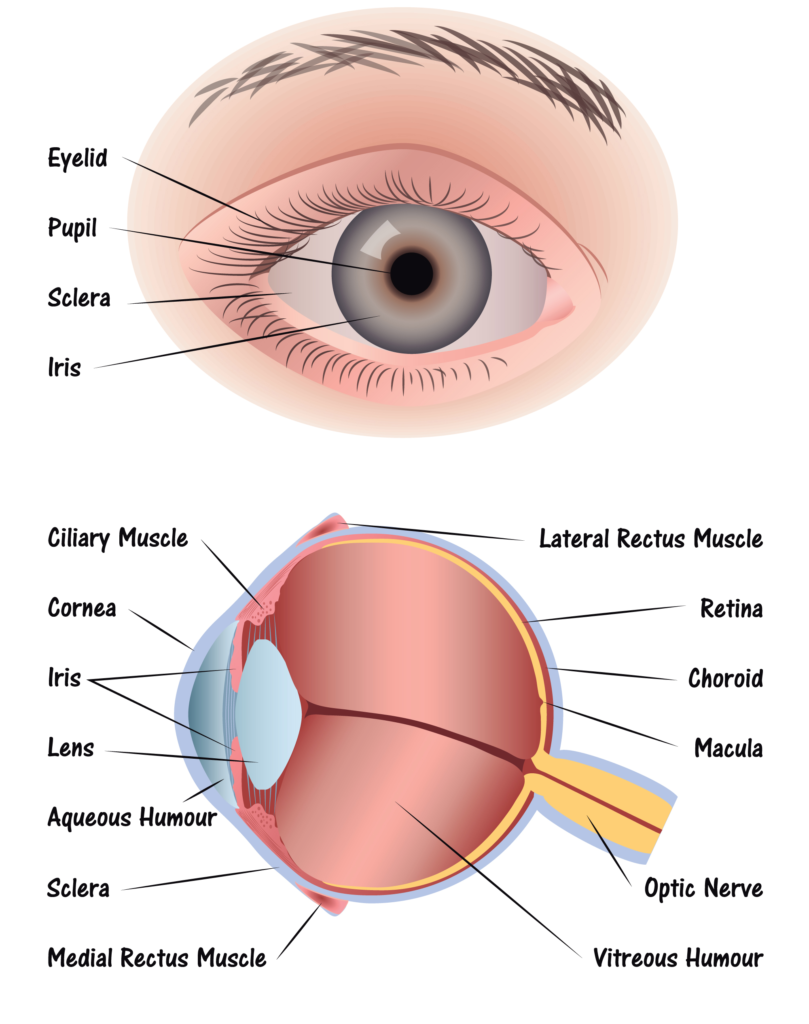 Step 1: Light passes through a thin layer of moisture
Step 1: Light passes through a thin layer of moisture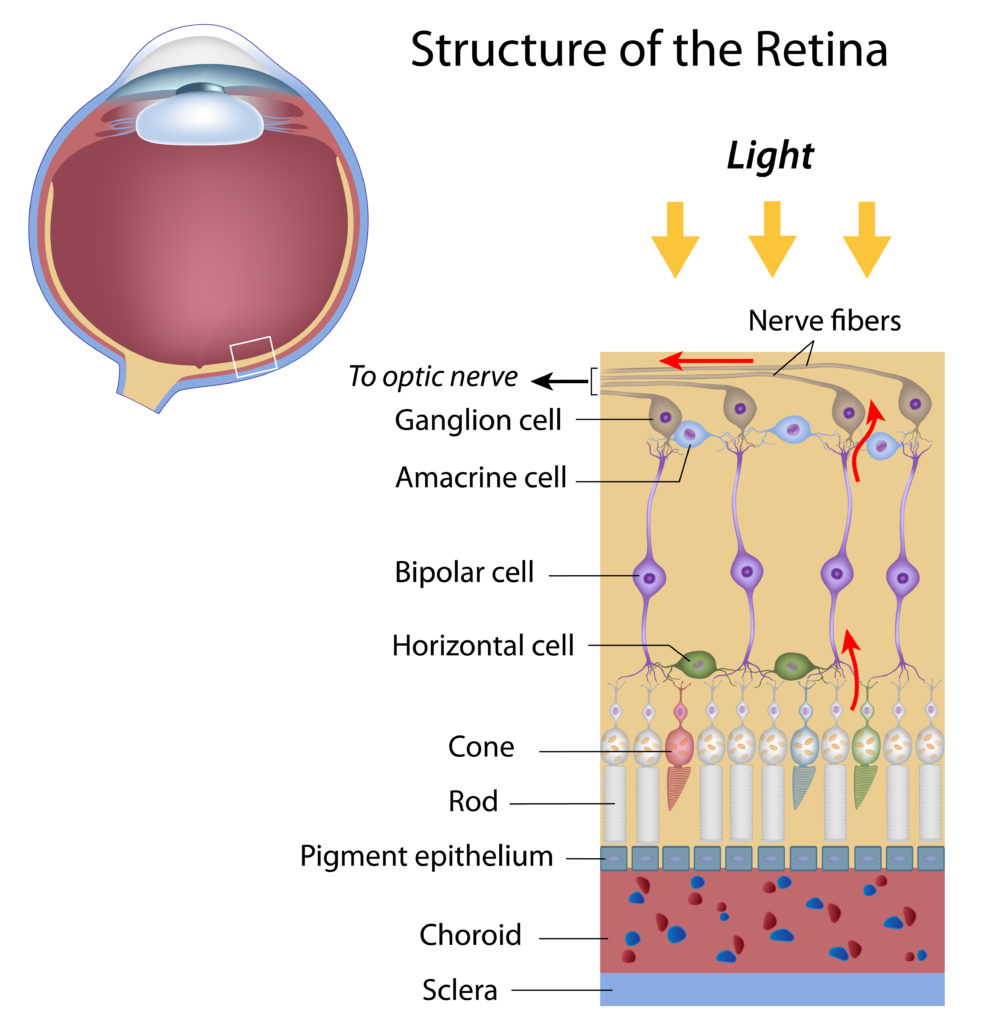
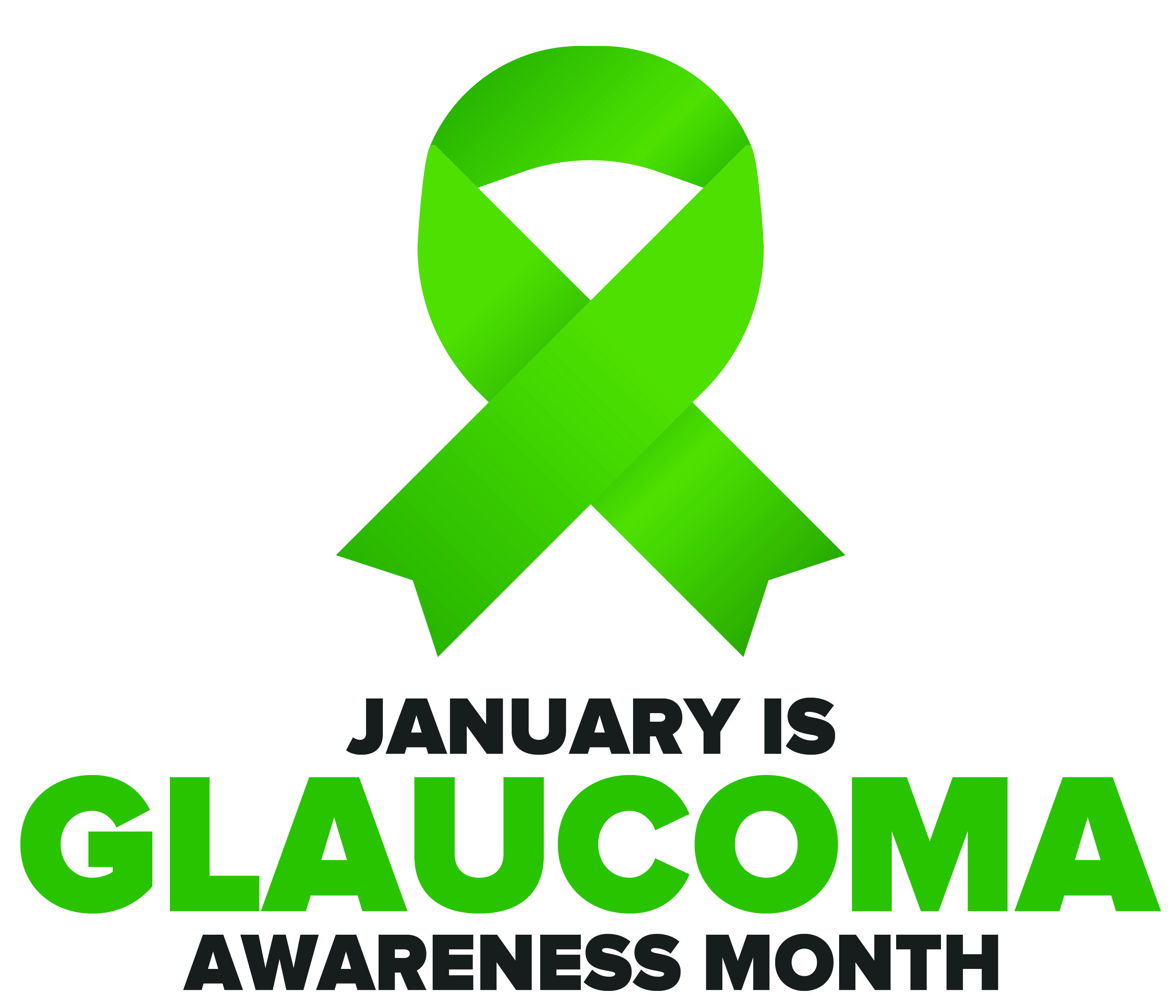 National Glaucoma Awareness Month reminds all of us to get regular eye exams and show support for those suffering from this condition.
National Glaucoma Awareness Month reminds all of us to get regular eye exams and show support for those suffering from this condition. 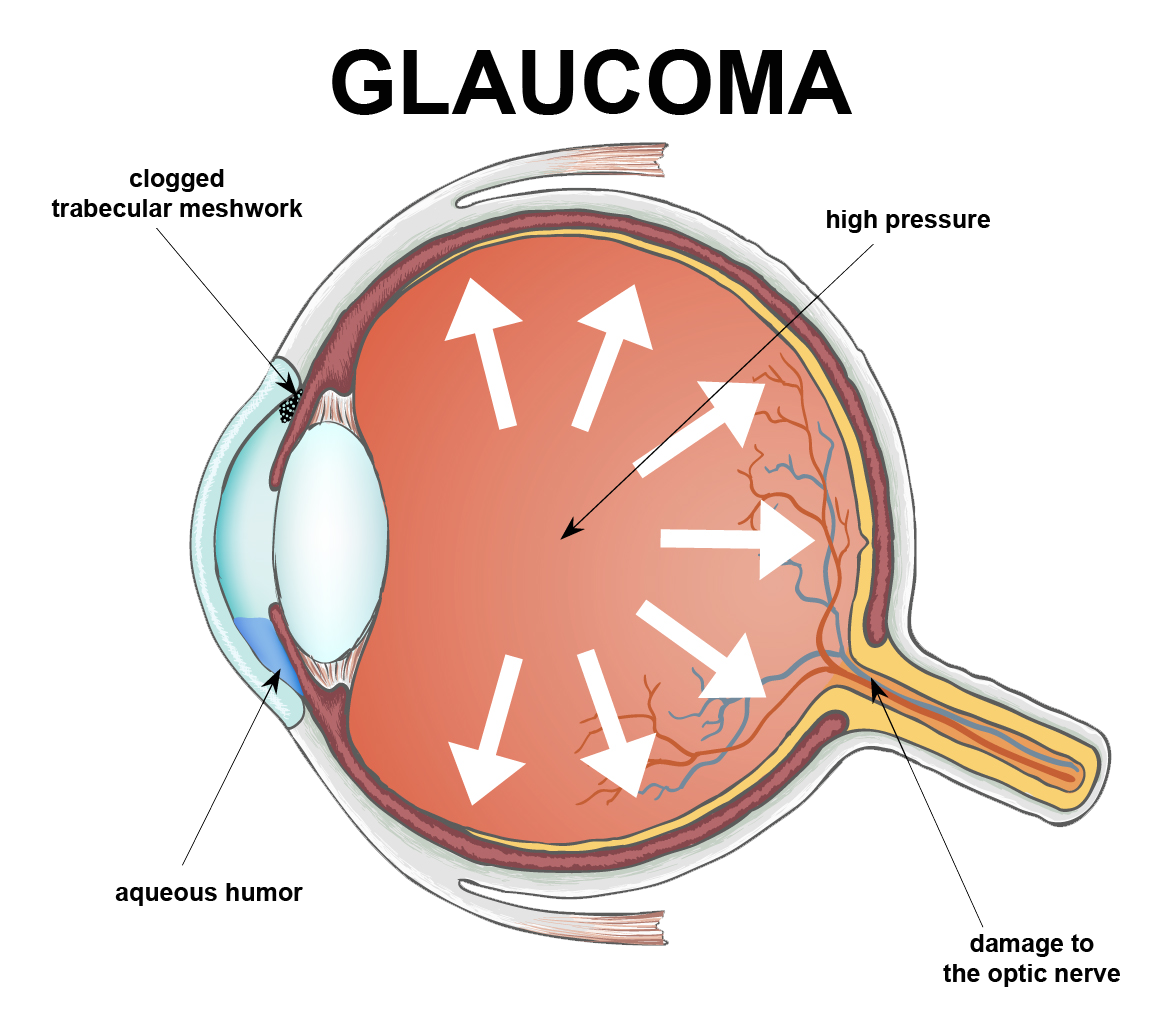


 Tom Sullivan
Tom Sullivan
 Thanksgiving is almost here; a meal that nourishes the family bonds and traditions. It’s the one time of the year where you can guarantee your eyes will be bigger than your stomach.
Thanksgiving is almost here; a meal that nourishes the family bonds and traditions. It’s the one time of the year where you can guarantee your eyes will be bigger than your stomach.  Healthy Aging Month is an annual health observance designed to focus national attention on the positive aspects of growing older. Aging is a process that brings many changes. Vision loss and blindness, however, do not have to be one of them. There are several simple steps you can take to help keep your eyes healthy for the rest of your life.
Healthy Aging Month is an annual health observance designed to focus national attention on the positive aspects of growing older. Aging is a process that brings many changes. Vision loss and blindness, however, do not have to be one of them. There are several simple steps you can take to help keep your eyes healthy for the rest of your life. When you think of cancer, most of us do not think about the eye or vision. Though rare, cancer can start inside or outside of the eye. If cancer starts inside the eyeball it’s called intraocular and if it starts outside the eye (eyelid or in the eye socket) then it’s called extraocular tumor. It can occur in both children and adults. Most major eye centers have specialists who are trained in the diagnosis and treatment of eye cancers.
When you think of cancer, most of us do not think about the eye or vision. Though rare, cancer can start inside or outside of the eye. If cancer starts inside the eyeball it’s called intraocular and if it starts outside the eye (eyelid or in the eye socket) then it’s called extraocular tumor. It can occur in both children and adults. Most major eye centers have specialists who are trained in the diagnosis and treatment of eye cancers.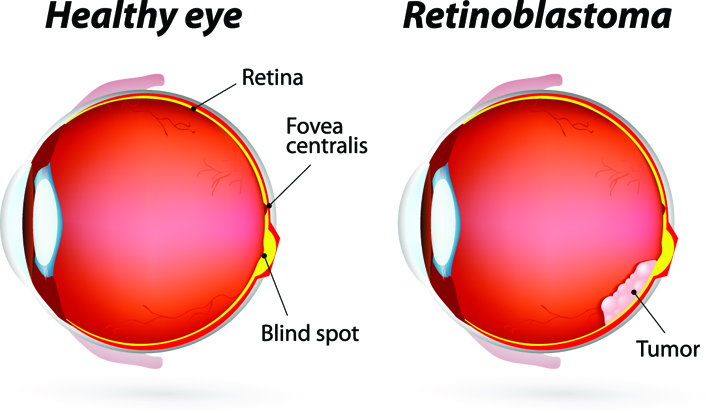 At the later stage of this cancer, the only one way to survive is to remove the eyeball (enucleation). Like many of other types of cancer, retinoblastoma has a genetic component so genetic testing needs to be done. The tumor begins with the RB1 gene mutation that stimulates retinal cells to develop into a tumor called a retinoblastoma. The RB1 mutation can be inherited from the parents, but in some cases it is sporadic and not inherited. There are various treatments such as surgery, chemotherapy, radiotherapy etc. to cure retinoblastoma cancer. Rarely it can spread beyond the eye.
At the later stage of this cancer, the only one way to survive is to remove the eyeball (enucleation). Like many of other types of cancer, retinoblastoma has a genetic component so genetic testing needs to be done. The tumor begins with the RB1 gene mutation that stimulates retinal cells to develop into a tumor called a retinoblastoma. The RB1 mutation can be inherited from the parents, but in some cases it is sporadic and not inherited. There are various treatments such as surgery, chemotherapy, radiotherapy etc. to cure retinoblastoma cancer. Rarely it can spread beyond the eye. 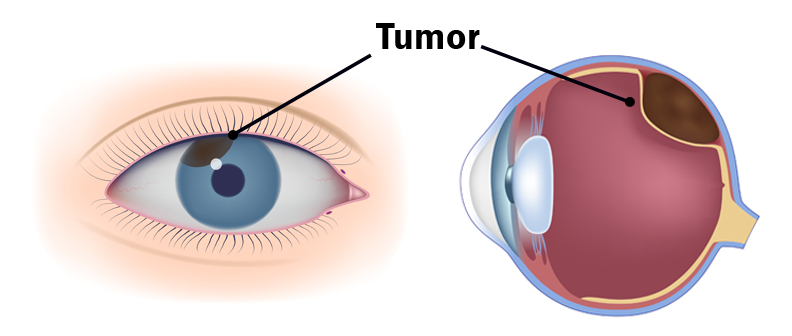

 UV Protection – Sunglasses for children should block 100% of UV radiation as well as between 75 – 90% of visible light. Any sunglasses you buy should have this information provided in the packaging
UV Protection – Sunglasses for children should block 100% of UV radiation as well as between 75 – 90% of visible light. Any sunglasses you buy should have this information provided in the packaging 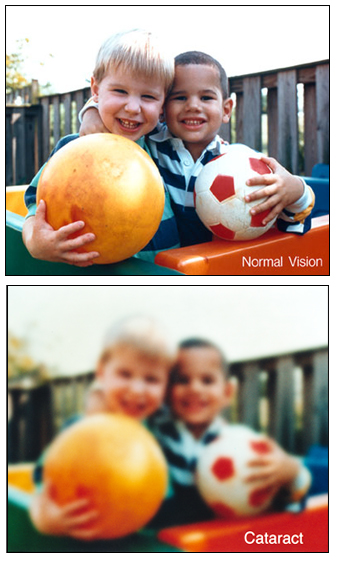 At the Discovery Eye Foundation (DEF), we are committed to supporting research that we believe will make the treatment of many forms of vision loss far more predictable and successful.
At the Discovery Eye Foundation (DEF), we are committed to supporting research that we believe will make the treatment of many forms of vision loss far more predictable and successful.